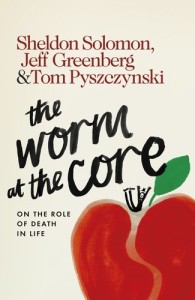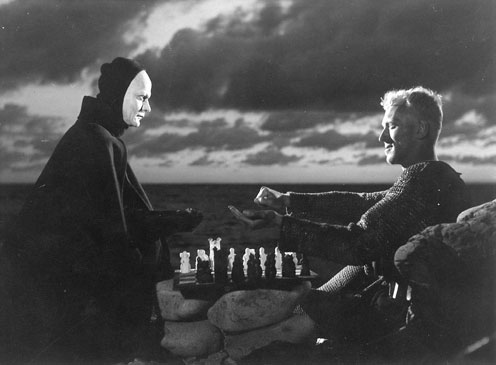This evening I told my six-year-old-twins the bad news: we have to put down our aging tortoiseshell cat Scully. Part of what made the task emotionally difficult was not just that they love the cat but that they live in a culture where they are shielded from death. If they’d been living in the nineteenth century they probably would have already seen a dead body, maybe laid out in someone’s home or at a neighbourhood funeral. But not today, where our contact with death, and conversations about it, are remarkably limited. Death is a subject as taboo as sex was during the Victorian era, even though issues such as euthanasia and palliative care are creating an element of public discussion.
The reality is that we live in a culture of death denial. Moreover, while few people would openly admit that their lives are driven by a fear of death, the nightmare of our mortality haunts us like nothing else. As Woody Allen put it, ‘I’m not afraid of death. I just don’t want to be there when it happens.’
The good news is that a fascinating new book has recently been published that offers compelling insights into the issues. The Worm at the Core: On the Role of Death in Life, by a trio of US psychologists – Sheldon Solomon, Jeff Greenberg and Tom Pyszczynski – is a path-breaking study that brings together over two decades of research into our responses to death. The originality of their work is to provide the empirical evidence that the fear of death is the hidden motive behind almost everything we do, from our career ambitions to the desire to have children.
I was lucky enough to meet one of the authors, Sheldon Solomon, Professor of Social Psychology at Skidmore College, and ask him some of the questions about death that were on my own mind. Here is what he had to say.
RK: Many people might doubt that fundamental aspects of their everyday life – such as the desire for self-esteem or a well-paid job – are actually driven by an underlying fear of death. What do you think is the most convincing evidence that this is actually the case?
SS: Many people are sceptical of our claim that fear of death underlies a substantial proportion of their behaviour on the grounds that they do not think about death all that much. However, according to Ernest Becker and terror management theory, death is so terrifying that we repress it by embracing cultural worldviews that give us a sense that we are valuable participants in a meaningful universe (i.e. self-esteem).
Literally hundreds of experiments have shown that when people are reminded of their mortality (e.g. by answering questions about their thoughts and feelings about death; being interviewed in front of a funeral parlour; or having the word “death” flashed on a computer screen for 28 milliseconds, so fast that they don’t see anything), they respond by behaving in ways that bolster faith in their cultural worldviews and fortifying their self-esteem. For example, after being reminded of death: Christians have more favourable reactions to fellow Christians and more unfavourable impressions of Jews; Germans sit closer to fellow Germans and further away from Turks; materialistic people become more interested in owning high status luxury items like fancy cars and watches; people who derive self-esteem from smoking cigarettes say they are more likely to smoke; and, people who derive self-esteem from their personal appearance report that they intend to spend more time in a tanning booth and use less powerful sunscreen at the beach.
RK: I was fascinated when you told me that your readings of Ernest Becker’s The Denial of Death and Irvin Yalom’s Existential Psychotherapy actually prompted you to leave your post as a young Professor of psychology and go on the road for a year. Could you say something about what you did, why you did it, and what you learned?
SS: I was profoundly discombobulated by Becker’s claim that our personal identity as well as our cultural allegiances are constructed during socialization (long before we are aware that this is the case) to mitigate death anxiety. Was this true for me too? Was I genuinely interested in being a professor and an experimental social psychologist, or was I also just a culturally constructed meat puppet assuaging my own death anxiety?
To find out, I took a leave of absence and trundled around the country doing odd jobs – mostly day labour, construction work, and working in kitchens as a dishwasher and a cook. I met some wonderful people and this work renewed my appreciation of excellence in every domain that I encountered it in. I also realized that in American society we do not value or reward (in terms of monetary compensation) people who do great work in positions that we all rely on but generally take for granted – such as day labour, construction work, and working in kitchens.
However, throughout my year of meandering (which I still value a great deal in retrospect), I still found myself genuinely interested in studying the role of death in life, reading the work of great thinkers like Becker, Otto Rank, and Irvin Yalom, and designing and conducting studies to delineate how death anxiety influences our attitudes and behaviour – and this ultimately prompted me to return to my post in Psychology.
 RK: What do you think is the relationship between empathy and how we think about death?
RK: What do you think is the relationship between empathy and how we think about death?
This is a good question that to my knowledge has not yet been examined theoretically or empirically, except for one study showing that empathetic people become more forgiving after pondering their own mortality. My sense is that empathy is critical for reducing defensive reactions to intimations of mortality (e.g. disparaging people who are different) as well as for helping us come to terms with our own mortality.
RK: How do you think about the concept of carpe diem – seize the day – and what, in your view, is its relationship to the idea of death?
Death anxiety is natural for those who love life. Premature involuntary death is always unspeakably tragic. And although humans can and should accept their own mortality with grace and humility, it doesn’t follow from this that we should all ‘go gentle into that good night’. Rather, let’s follow Étienne Pivert de Sénancourt’s 1804 advice: ‘Man is perishable. That may be; but let us perish resisting, and, if nothingness is what awaits us, let us act in such a way that it would not be a just fate.’
So what then does ‘the good life’ entail? How does one live well with death? The ancients generally agreed that living well is not the same as living long, and often bemoaned people’s unfortunate tendency to squander their existence. As the Roman philosopher Seneca observed in On the Shortness of Life: ‘So it is – the life we receive is not short, but we make it so, nor do we have any lack of it, but are wasteful of it. Just as great and princely wealth is scattered in a moment when it comes into the hands of a bad owner, while wealth however limited, if it is entrusted to a good guardian, increases by use, so our life is amply long for him who orders it properly. I cannot doubt the truth of that utterance which the greatest of poets delivered with all the seeming of an oracle: “The part of life we really live is small.” For all the rest of existence is not life, but merely time.’
Almost two thousand years later, Abraham Lincoln put the same idea in a nut shell: ‘And in the end, it’s not the years in your life that count. It’s the life in your years.’ To make the most of life, the Roman poet Horace counselled to ‘Seize the day, trusting as little as possible in the future’ (Carpe diem quam minimum credula postero), a sentiment echoed by biblical exhortations to ‘eat, drink and be merry, for tomorrow we die.’ A common, but unfortunate, expression of this stance towards life is the narcissistic pursuit of superficial pleasures combined with a cavalier disregard for fellow humans, like the “What – Me Worry?’ mentality of Mad Magazine’s Alfred E. Neuman, or the more recent ‘Don’t worry, be happy’ anthem of an unreflective self-indulgent life-style characterized by the Danish philosopher Soren Kierkegaard as ‘tranquilization by the trivial’.
We’re pretty sure that isn’t what Horace or the authors of the Bible had in mind, so much as, to borrow a phrase from Bob Marley, ‘If you know what life is worth, you will find yours here on earth.’ Be sublimely aware and profoundly appreciative of being alive, live every day in earnest, respectful of the past and devoted to the future, but absorbed in and enthralled by the present. And heed the ancient maxim memento mori, ‘remember that you are mortal’. According to Martin Heidegger and like-minded existentialists, a meaningful ‘authentic existence’ can only be achieved by those who maintain a constant awareness and acceptance of their finitude.
The Worm at the Core: On the Role of Death in Life, by Sheldon Solomon, Jeff Greenberg and Tom Pyszczynski, is published by Allen Lane in the UK and Random House in the US.
Roman Krznaric’s books, including Empathy and The Wonderbox, have been published in over twenty languages. He is founder of the world’s first Empathy Museum.

Thank you, Roman. I plan to live a wonderful day.
Yoav Peck, Jerusalem